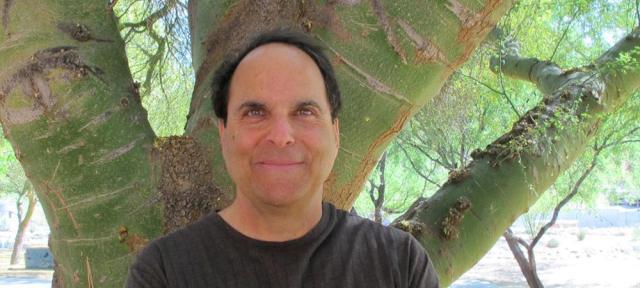Daniel Asia 71F Joins the American Academy of Sciences and Letters

Composer and Professor Emeritus of Music Daniel Asia 71F was recently named a member of the American Academy of Sciences and Letters, in recognition of his contributions to human learning.
Asia was honored alongside other new members at a ceremony in Washington, D.C., in November. We talked with him about how his experience at Hampshire, as well as at Amherst and Smith Colleges, impacted his work as a musician, conductor, and composer.
What originally attracted you to Hampshire?
A wonderful teacher in high school had gone to Amherst College. He knew I probably wouldn’t want to go there, but said there was a new college starting in the area that sounded interesting, and that I might want to check it out. I did and applied. I only got in off the waiting list in the summer, after deciding to go to Vassar. I liked that Hampshire was already known as “the experimenting college” and that it allowed in-depth study.
What did you study?
I did lots of music. I ended up studying composition with former Professor of Music Randall McClellan. I started a brass group, which I conducted, and sang in the chorus under Valerie Pilcher, also a music professor, who also taught me conducting. I ended up writing a piece for the group. I took courses in music at Smith and Amherst Colleges, too.
I finished up Div II after my second year and spent the following year at the San Francisco Conservatory studying solfège [a system using syllables to represent musical notes], theory, conducting, and the symphonies of Haydn. For my Div III, I wrote a lengthy work for soprano, oboe, electric cello, harp, and percussion, and was assistant conductor of the Smith-Amherst Orchestra.
How did your Hampshire experience relate to/impact the work you’re doing now?
Studies at Hampshire, Smith, and Amherst set me up for graduate studies at the Yale School of Music. I was a bit rough around the edges and didn’t quite fit into the genteel Ivy League atmosphere. But like a few musical iconoclasts of the time — Meredith Monk, Philip Glass, and Steve Reich — I weathered the situation and came out on the other side just fine. Hampshire taught me to make things happen, and that’s what I did when I went to New York after graduate school and founded and conducted the new music ensemble Musical Elements, which became one of the foremost ensembles of its type for 15 years.
What happened next?
After being a composition fellow at the Boston Symphony Orchestra’s Tanglewood, my wife, whom I met at Hampshire, and I went off to Germany because I received a DAAD fellowship for study in West Berlin, where I nominally studied with a Korean composer, Isang Yung, at the Musikhochschule.
My wife and I came back to the States and had our first child in Seattle, my hometown. Then we spent five years in Oberlin, where I taught at the music conservatory on a five-year terminal contract. At the end of that period, I received a Guggenheim and a UK Fulbright Arts Award Fellowship. That took us to London for two years. I returned to a position at the University of Arizona, running the composition department. I retired last May, having served on the faculty for 36 years.
I wrote symphonies, chamber music, song cycles, and electronic music. At the end of the first decade of the 2000s, I decided to compose an opera. I talked to my writing colleague and friend Paul Pines, whom I had met at the MacDowell Arts Colony at the end of the ’70s and whose poetry I had repeatedly set to music. He thought we might make a great opera based on the book he was writing when we met, The Tin Angel. The book is set in and around a jazz club of the eponymous name and is inspired by Paul’s having founded and run a famous jazz club, the Tin Palace, in the 1970s, in the Bowery.
It's taken more than 15 years to get the project from concept to production, but we’re finally here. I invite all my Hampshire brethren to the premiere of The Tin Angel, June 28 and 29, at La Mama, in the same Bowery where all the action occurs. It’ll be one helluva show, and, yes, have no fear, the opera’s in English!



